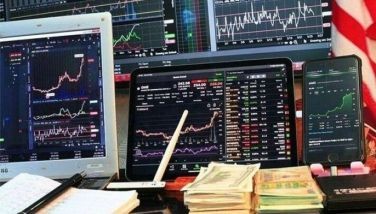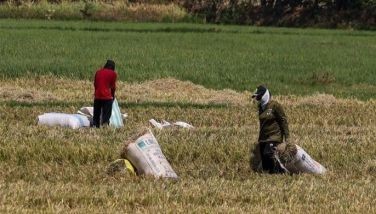Balancing an act
Balancing the budget is already hard enough, but balancing an act is even more difficult considering the circumstances affecting the global arena plus, the fact that virtually every Tom, Dick and Harry is breathing down your neck ready to pounce at the slightest misstep. Such is the dilemma facing Gloria Macapagal-Arroyo as she nears the delivery of her State of the Nation Address or SONA. GMA is expected to explain a “realignment” of expenditures so that social programs, infrastructure and environmental protection will be given focus. No doubt this is driven by current worldwide concerns particularly the impact of global warming and climate change with erratic weather patterns triggering floods and other natural disasters, or on the other hand, causing prolonged dry spells which have affected food production on a massive scale.
Before the onset of the global rice and oil crisis, there was every indication that the country’s economy was surging ahead. The peso showed remarkable strength, touted as
But whatever gains the 7.3 percent GDP growth rate may have accomplished are slowly being eroded by the global oil and food crisis, with prices skyrocketing at levels never seen before. At the onset when oil prices were just starting to surge, it was already unthinkable that the price per barrel would hit $100. But a combination of man-made causes and natural disasters have fueled the surge, with experts blaming the situation in Iraq and the Middle East for the zooming prices which have more than tripled, costing the whole world an overwhelming $6 trillion in higher energy costs alone. Today, the idea of $200 per barrel no longer shocks people, desensitized as they are with the almost weekly increase in fuel prices.
Then came the rice and food crisis which have also reached global proportions, exacerbated by the long dry spell in Australia which affected the supply chain – to the point that some countries have decided to ban all rice imports to ensure supply for their domestic consumption – which is bad news for countries like the Philippines that have become largely dependent on imported rice and food products.
The government tried to ease the burden particularly on the poor by coming up with short-term solutions, offering subsidized NFA rice and allocating some P5 billion in cash subsidies. Various sectors including the Catholic Church promptly criticized the cash subsidies as insulting dole-outs that will only promote the culture of dependence, saying the money would have been put to better use by creating jobs or the construction and repair of school buildings. With the pressure for the removal of VAT on oil products continuing to increase, government is mulling a proposal to replace it with a specific oil tax wherein gasoline will carry a heavier tax burden than diesel or kerosene products which are largely used by the poor.
The bottom line, however, is that the country might end up a bankrupt nation if things continue at their present pace. GMA has to face up to the reality of the situation, but at the same time, she cannot project any weakness or anxiety over the country’s economic prospects – a difficult act to balance whichever way you look at it.
GMA has always been focused on balancing the budget, setting the target date by 2010. But when things were starting to look upbeat and, as she herself described, “our (economic) reforms were doing so well,” she confidently predicted that we would have a balanced budget by 2008. Backtracking, GMA admitted, “That was of course before the fuel and the rice crisis in the world. So we still reserve the right to go back to 2010 if we want to.”
No doubt the country is experiencing one of the most difficult times with the continuing rice, food and fuel crisis. Never before has the world seen such skyrocketing prices on basic commodities, expected to continue until the next five years, and those who will suffer the most are the poor majority. As World Bank president Robert Zoellick put it, some $6 billion a year in food aid will be needed to feed the hungry. Like the
If these things have not happened, there would have been every possibility that GMA will leave the country in good economic shape. But the current situation coupled with the peso’s continued weakening and the inflation rate hitting 11.4 percent in June, recorded as the highest since May 1994, make such a prospect seem difficult to accomplish. But cliché as this may sound – this should not be the time to engage in political wrangling and agitation. What is needed are concerted efforts for everyone to hurdle the tight economic situation today. A situation that at this point, is beyond the ability of government to solve on its own – an act that will be difficult to balance.
* * *
Email: [email protected]
- Latest
- Trending































